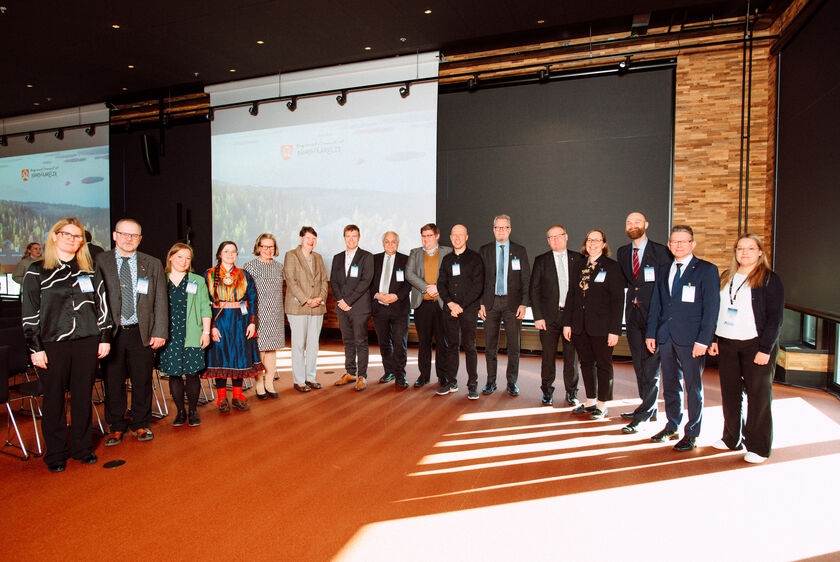Barents Euro-Arctic Council regional council members met in October 2023 to inaugurate new Chairman Markus Hirvonen of Finland. The future of the 30-year-old council is in doubt after Russia’s 2023 exit. THE BARENTS EURO-ARCTIC COUNCIL
THE WATCH STAFF
The Kremlin’s war of territorial aggression against Ukraine likely has ended a cooperative Arctic council that once hoped to integrate Russia into the region’s framework of a rules-based international order. The Barents Euro-Arctic Council, composed of the foreign ministers of Denmark, Finland, Iceland, Norway, Sweden and the European Union, hasn’t had a clear role since Russia’s September 2023 departure from the organization, prompted by a freezing of the council’s activities shortly after the February 2022 unprovoked invasion of Ukraine. Finland’s Foreign Minister Elina Voltonen recently said that Finland would likely leave the council in the near future. Similar reports from governmental bodies and the media indicate that Norway and Sweden are also mulling exits.
Russia was supposed to rotate into the chairmanship of the council in October 2023. But, after the invasion, Finland declined to yield the chairmanship “to a country that is engaged in an illegal war of aggression,” according to a 2023 news release from the Finnish government. Finland, Norway and Sweden then assumed a joint trilateral chairmanship, but that arrangement seems to have reached its end. All three governments already work closely in other regional forums, including the Nordic Council. Norway led the effort to form the council in 1993 and, aside from a forum of regional cooperation and discussion, it also functions at a local level between the northern regions and provinces of the northern Nordic countries. Indigenous rights and scientific exploration have been the subject of working groups over the last 30 years.
“The Barents cooperation takes a regional and practical approach to the wider Arctic cooperation. With the Barents cooperation, Finland has achieved concrete results in many areas that contribute to sustainable development, including people-to-people contacts and improved connectivity,” the release stated. However, with all three nations now NATO members and the focus in the Arctic shifting toward defense and the security of the borders and sea lanes of the seven Arctic allied states, the purpose of the council has faded.
It retains a regional purpose, providing a coordinating body for nine northern provinces of Finland, Norway and Sweden. The future of the body probably lies within the parameters of strengthening local ties among Nordic allies, said Markus Hirvonen, who is region mayor of North Karelia in eastern Finland and current chairman of the Barents Regional Council. “There is no need for very formal, top-level committee-like meetings anymore. This was necessary to foster friendly relations with Russia.” The Nordic member states could instead focus on achieving objectives and getting things done, Hirvonen said. “In retrospect, we should have started thinking about the reformation of the Barents cooperation without Russia sooner. Instead, we continued in the same way, but with one country less.”

